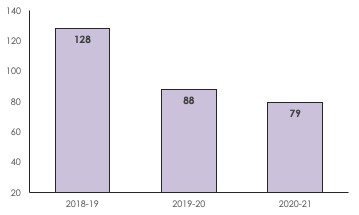Recalls of food products due to undeclared allergens drop 10% in year
The number of food products recalled from the market due to allergens that were not declared on the label has dropped 10% in the past year. In 2020-21, 88 in 2019-20 to 79 to 2020-21, says RPC, the international law firm.
- Food manufacturers appear to be taking extra caution
- Recalls for products with undeclared milk causing issues for manufacturers
The number of food products recalled from the market due to allergens that were not declared on the label has dropped 10% in the past year. In 2020-21, 88 in 2019-20 to 79 to 2020-21, says RPC, the international law firm.
The Food Standards Agency has stated that the apparent decrease in reported incidents and alerts is likely to be due to changes caused by the pandemic, including the streamlining of food production lines and fewer food businesses operating.
RPC says the decrease may be due to increased awareness in the food industry about the impact of failing to properly label allergens. This has, in part, been brought about by the publicity surrounding the introduction of Natasha’s Law.
Under the new legislation, which came into effect on October 1st, businesses that prepare and sell food on the same premises must include a list of all ingredients and allergens on food and drink product labels.
The legislation was introduced following the death of teenager Natasha Ednan-Laperouse, who died from a severe allergic reaction after eating a sandwich. This had not been labelled as containing sesame seeds, which had been baked into the bread.
Despite the overall decline, the proportion of products that were removed from the market due to milk not being declared has increased. These now account for 27% of all recalls relating to allergens, compared to just 17% in 2017-18.
For those suffering from the common ailment of lactose intolerance, consuming milk typically causes relatively mild but uncomfortable symptoms, such as digestive problems. However, more serious is dairy allergy, which can lead to rashes, wheezing and even anaphylactic shock.
Mamata Dutta, Legal Director at RPC says: “Manufacturers have clearly taken on board the risks associated with failing to label allergens on food correctly. The drop in number of recalls suggests manufacturers have made improvements in this area.”
“Although Natasha’s Law has only just come into force for food businesses that prepare and sell food from their premises, many businesses have been adopting the requirements as best practice for some time now.”
Food products recalled due to allergens down 38% from 2018-19 peak

Stay connected and subscribe to our latest insights and views
Subscribe Here